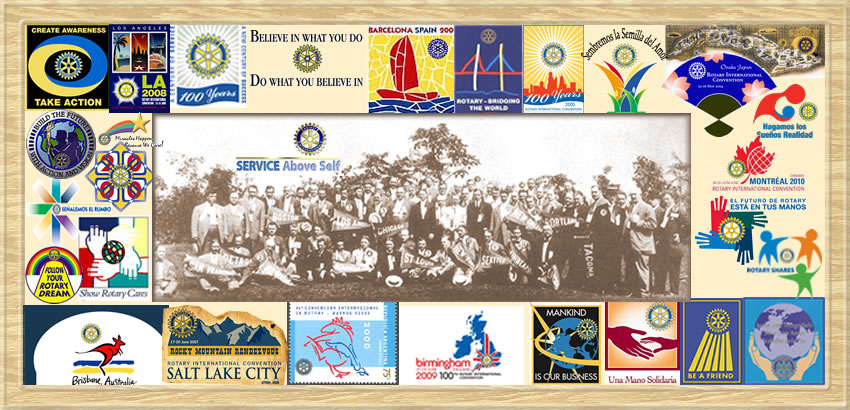
Introduction
Rotarians — men and women alike — volunteer their efforts to improve the quality of life in their own communities and beyond their communities’ borders. The world’s Rotary clubs meet weekly and are non-political, non-religious, and open to all cultures, races, and creeds. Club membership represents a cross-section of local business and professional leaders.
Rotarians initiate community projects that address many of today’s most critical issues, such as violence, drug abuse, youth, AIDS, hunger, the environment, and illiteracy. Rotary clubs are autonomous and determine service projects based on local needs.
Rotarians work with and for youth to address challenges facing young people today. Through participation in Rotary-sponsored Interact clubs (for secondary school students), Rotaract clubs (for young adults), and Rotary Youth Leadership awards, young people worldwide learn leadership skills and the importance of community service. Rotary Youth Exchange gives high school students the opportunity to broaden their world view and build international friendships.
In large cities often plagued by urban violence, Rotary has the community-based network to help. Rotary-sponsored projects and conferences address the root causes of violence such as drug abuse, poverty, lack of role models, and gangs.
Mission
The main objective of Rotary is service — in the community and throughout the world. Rotarians build goodwill and peace, provide humanitarian service, and encourage high ethical standards in all vocations.
The Rotary motto is “Service Above Self.”
Structure of Rotary
Rotary is made up of three parts: at the heart of Rotary are our clubs, that are supported by Rotary International and The Rotary Foundation.
Rotary clubs bring together dedicated individuals to exchange ideas, build relationships, and take action.
Rotary International supports Rotary clubs worldwide by coordinating global programs, campaigns, and initiatives.
The Rotary Foundation uses generous donations to fund projects by Rotarians and our partners in communities around the world. As a nonprofit, all of the Foundation’s funding comes from voluntary contributions made by Rotarians and friends who share our vision of a better world.
Together, Rotary clubs, Rotary International, and The Rotary Foundation work to make lasting improvements in our communities and around the world.
Partners of Rotary
When Rotary partners with other organizations, we multiply the impact made by either group on their own. We call this “the Rotary effect.” From local food banks to global humanitarian organizations, we work with a wide variety of partners, including:
Bill & Melinda Gates Foundation
Centers for Disease Control and Prevention
Global FoodBanking Network
ShelterBox
UNESCO-IHE
UNICEF
United Nations
World Health Organization
Leadership of Rotary
What does it take to be a leader with Rotary? Integrity, expertise, and a commitment to service—all the qualities that make Rotary members extraordinary. We look for these qualities in all our leadership positions, including our elected President and Board of Directors, who lead Rotary International, our appointed Trustee Chair and Board of Trustees, who run The Rotary Foundation, and our General Secretary and executive staff, who provide long-term oversight of the organization. Members of each Rotary club elect their own leadership.
Rotary’s Code of Conduct
As a Rotarian, I will….
- Exemplify the core value of integrity in all behaviors and activities
- Use my vocational experience and talents to serve in Rotary
- Conduct all of my personal, business, and professional affairs ethically, encouraging and fostering high ethical standards as an example of others.
- Be fair in all dealings with others and treat them with the respect due to them as fellow human beings.
- Promote recognition and respect for all occupations which are useful to society.
- Offer my vocational talents : to provide opportunities for young people, to work for the relief of the special needs of others, and to improve the quality of life in my community.
- Honor the trust that Rotary and fellow Rotarian’s provide and not do anything that will bring disfavor or reflect adversely on Rotary or fellow Rotarian’s.
- Not seek from a fellow Rotarian a privilege or advantage not normally accorded others in a business or professional relationship.
Membership Statistics
Current membership figures worldwide
Rotary members worldwide 1.2 million
Rotary clubs worldwide more than 34,282
Rotary countries over 170
Rotary districts 530